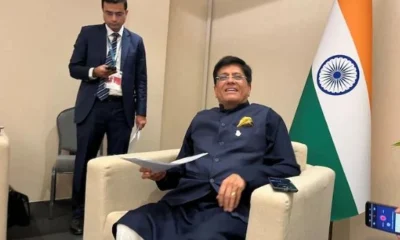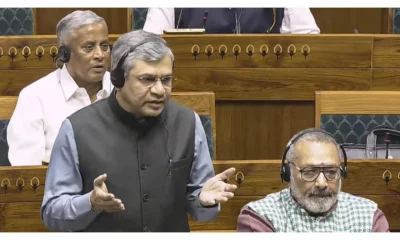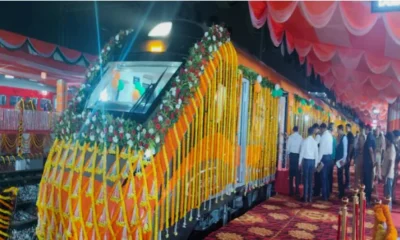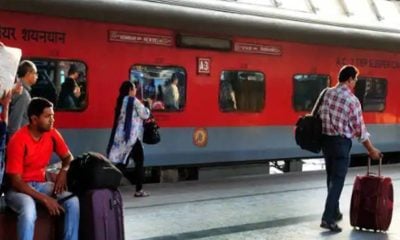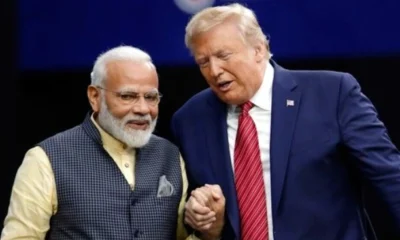Waiting at the ‘outer signal’ and spending time waiting for the train to get to the station – after reaching the destination town or city – is a common experience.
There isn’t enough space for trains on stations, and little is being done to change that.
A report by Comptroller and Auditor General (CAG) finds this to be the reason behind late running of trains, a problem that is getting progressively worse due to misplaced priorities of railways infrastructure development.
The CAG report points that one of the most important reasons for train delays was the lack of basic infrastructure which leads to detention of trains before they reach the station.
Coming down heavily on the Railways for focussing on improving passenger facilities and facade of stations, instead of trying to ensure timely movement of trains, the CAG said the station modernisation plans should address infrastructural constraints.
In its latest report tabled in Parliament, CAG said, “The station development/redevelopment plans mainly address on facilities for the passengers on the station premises and facade of stations only and not on removing constraints and bottlenecks for ensuring timely arrival and departure of trains to/from the stations, which should be one of the most important parameters of the quality of service being provided to the passengers.”
Due to non-availability of path (platform/line), the trains have to wait at outer signal or the adjacent station until the platform is vacated by preoccupied trains. CAG observed significant detentions to trains at the selected stations. Passenger trains were detained for 15 to 25 minutes per train at all stations except Howrah, Bhopal, Itarsi and Ahmedabad.
The auditor observed that over a period of time the number of trains handled per day in 15 selected stations has increased significantly. “However, the infrastructure such as platforms, washing pit lines and stabling lines at the stations were not augmented according to increase in number of trains,” the CAG said.
Of the 2,436 trains handled by the 15 stations as of March 2017, 638 trains are being run with 24 or more coaches every day.
“To accommodate these train rakes of longer length, there should be platform of adequate length and adequate facilities of stabling and washing pit lines,” it said.
The CAG also said that the absence of adequate number of platforms was one of the important reasons for detention of trains at the preceding station or at the outer signal.
The CAG report has found that the railways keep launching new trains but the infrastructure needed to sustain them doesn’t grow accordingly.
The audit reviewed the number of trains handled, platforms, washing pit lines and stabling lines at these station for March 2007, March 2012 and March 2017 and observed that infrastructure such as platforms, washing pit lines and stabling lines at the stations were not augmented according to increase in number of trains handled on these stations over a period of time.
In its suggestions to the railways, the CAG recommended that all zonal railways need to prepare comprehensive Master Plans for stations with heavy passenger traffic, identify constraints of station line capacity and devise measures to be taken to address these constraints on priority.
The auditor also said that before taking up modernization/redevelopment of stations and constructing new buildings, the possibility of further expansion of the stations by adding more platforms need to be considered.


 India News15 hours ago
India News15 hours ago
 India News14 hours ago
India News14 hours ago
 India News5 hours ago
India News5 hours ago
 Cricket news5 hours ago
Cricket news5 hours ago
 India News4 hours ago
India News4 hours ago


